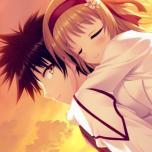Leaderboard
Popular Content
Showing content with the highest reputation on 04/13/19 in all areas
-
I've made this observation before, but Otomege, for all that they profess to be directed at a female audience, are in fact simply directed at a different male audience. Almost all otomege protagonists are passive, helpless, or have some form of DIDS (Damsel In Distress Syndrome). There are (a very few) otomege that manage to escape this to one extent or another (my favorite being Sanzen Sekai Yuugi), but those are even more of an exception than the charage where the protagonist has a real personality. I don't like to be a bastard about this, but the reason I end up only finishing one path or not finishing most otomege is not because I don't like female protagonists... but because the female protagonists are all beta personalities who are just short of being airheads (and some of them are airheads too). Alpha personality (dominant) female protagonists are about 1 in 50, in my experience, in otomege, to the point where I'm starting to think the industry is trying to brainwash female otakus outright (except more female otakus play BL than otomege in Japan). Now, the tendency to find it difficult to forgive promiscuity in females is, in fact, the very reason why most charage have 'all virgin heroines' tags. This is partly a leftover of pre-modern society that seems to linger in most cultures across the world that profess equality of the genders, but it is also hard-wired into the male brain. Games where the heroine is a rape victim are easier to find than ones where the heroine is 'experienced', has an affair, or goes back and forth between the protagonist and other men (if you exclude nukige). In fact, the percentage of that type of game is vanishingly small, to the point that I can only think of about twenty-five games off the top of my head. Most of those were horror, had dark elements, or had some kind of brainwashing element involved, so you can see how strong the aversion to NTR in non-nukige is. To explain some of the cultural background... Japan, despite it's 'modernized' culture, is in fact still a culture only a century and a half away from an age where wealthy and/or powerful males were actually more or less expected to keep multiple partners (in the case of the Shoguns, multiple wives outright, most of them chosen for political reasons), all of whom were considered legitimate under the law as long as he had the means to support them and their children. Even now, most don't think much of it when a wealthy businessman has a mistress or two, as long as there is agreement or approval from the wife (it is the act of hiding another sexual partner that is considered to be dirty, as opposed to having one). Oh, if he flaunts the fact that he has multiple partners, it might become an issue (seen as a sign of a lack of proper modesty/humility), but most of the time it doesn't. However, if the female, on the other hand, was with another male, it was pretty much standard to see them beheaded, hanged, or otherwise killed out of hand, along with the man in question. Modern Japan's taboos are a product of the active encouragement of Western influences after the Meiji Restoration and after WWII, as well as the fact that a huge portion of the privileged castes vanished outright after the Restoration (thus vastly decreasing the number of males that were considered 'entitled' to multiple partners) and the newer castes were eliminated completely after WWII. The fact is that Japan is not as progressive in this matter as the urban West even now (the rural West still being generally chauvinistic for various reasons, with exceptions). Women's choices are questioned if they don't marry by age 25, and there is still a cultural assumption that females will retire early to have children. While aggressive female personalities are accepted there (outside of non-management work, where aggression is generally discouraged in both genders), aggressive female choices aren't.5 points
-
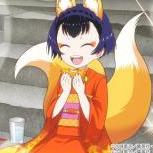
List of VNs with official english release
cykaki and one other reacted to bakauchuujin for a topic
I made a youtube video for the list just generally talking about it and how things are sorted on it. The video is just me talking while I use to list to showcase a few things, but it was somewhat fun to try to make a video. Maybe in the future I will try to make some other visual novel related video though at the moment I don't know that much about editing videos so they probably won't be that great regarding quality.2 points -
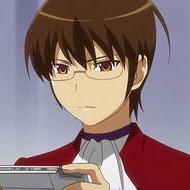
VN from the perspective of gender rebellion
Alcorin and one other reacted to Plk_Lesiak for a topic
Well, it definitely wouldn't hurt your case. I think [redacted (:p)] break these stereotypes to an extent, as do many other chuunige with proactive, strong heroines. Plot-oriented yurige like Fatal Twelve or Shadows of Pygmalion also create a different dynamic, from the sheer lack of male leads. Many otome VNs are, in a way, mirroring eroge, trading the passive heroines for a passive, spineless protagonist (but also, the heroes in them are often absolved from moral judgment, even if they're literally rapists or murderers - yandere love interests are plenty in otomege). There are important exceptions though, like Code: Realize or Cinderella Phenomenon (the last one being an EVN and those generally treat female characters differently). Maybe I'm fixating on agency a bit too much, but I see it as a broader rule. Wherever characters are just romantic or sexual objects (most moege and nukige, and also most otomege), they'll be absolved from everything as long as they love the protagonist and stay faithful to them (I mean... The romance wouldn't really work otherwise and most VNs go for wish fullfilment over anything else). When they're actors influencing a (proper) plot, what they do and how they behave will have a lot more weight.2 points -
Trying to find NTR titles on VNDB that aren't too hard on Main character yet still have that competitive atmosphere between Protagonist and various suitors. So far it's just been hit-or-miss.... as getting good ending doesn't exactly ensure that heroine rape is avoidable(as in Oyako Rankan). Since even following walkthrough leads to spontaneous NTR scene more or less.... suggestions please1 point
-
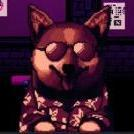
An attempt at classifying protagonists
Plk_Lesiak reacted to alpacaman for a blog entry
Protagonists perceived as weak seem to be something a lot of people reading VNs complain about, and as this is an interesting topic imo, I've been spending some time trying to organise my thoughts on it and write them up in a way that's not completely incoherent. In the process I started reflecting on main characters and their role in fiction on a more fundamental level and came up with a very basic way to categorise main characters, by comparing their personalities to how much it advances the plot in their respective stories. I even made a very professional looking diagram to explain my thinking: As you can see, the y-axis is supposed to be a measure for the MC's personality, while the x-axis shows how much they actively influence the plot. As each quadrant marks a certain general category of protagonist, I also named those in a way I found fitting (in italic) and added a few examples from VNs I read. The measure for personality I chose is a mixture of a protagonist's general determination to face problems head on and to which degree they are actually able to solve the ones the plot poses. I know this is kind of a soft category but this whole thing isn't supposed to be a scientific essay and I couldn't come up with anything better so it will have to do. On the top end of this scale you would have someone like Superman, on the bottom end probably Bella Swan. The question about how proactive a protagonist is at least in this metric boils down to if they mainly react to plot points happening or if they themselves make plot points happen. This category also isn't perfect though. For example almost any character arc involving a protagonist in the "weak" category is about them turning stronger. In my opinion this doesn't make a character more proactive though as this is usually driven by plot necessity. In this metric you can define four broader types of protagonists. The weak protagonist is someone who usually stumbled into his situation and mainly goes with the flow. The strong protagonist makes his own destiny. The observer is someone who isn't getting too actively involved in the things going on around him, either by their own choice or some external reason. As for the fourth category, I don't know if there actually are protagonists that combine being incapable or weak willed with being proactive. I used Phoenix Wright as an example as you could at least argue that he's only getting by through luck while he always keeps fighting till the end, but that should also move him further up on the personality scale. You will probably also disagree with other choices I made about where to put certain characters. So as you can see, this is more of an orientation to think about characters and their roles in fictional media than an objective measure. It also doesn't tell us anything about how well a character is written. There are bland action heroes as well as super well developed wimps. I still thought this self-made graphic might be an interesting thing to share. It might also turn out to be a good place for me to reference whenever I might think about writing something about an MC. At least until someone comes along and completely destroys all of my personal theories I based this on. edit: I thought I'd add and explain a few examples for each category (except the useful idiot as I can't confidently name any) from other media so people who don't know any of the guys in the chart or find my explanations too abstract or incomprehensible can get a grasp on what I mean. But first to give an example of what I mean by proactive vs. passive, because just doing a lot of things is not the same as being proactive: Imagine a story where someone dear to the protagonist gets murdered. If this turns into them killing everyone responsible, the MC is extremely proactive. they could just wait for the judicial system to prosecute the bad guys and testify as a witness, but his thirst for revenge drives everything happening from then on. A passive protagonist in such a scenario might be someone who struggles with the loss and is overwhelmed by everyone else not caring and instead fighting over the inheritance. But now for the protagonist types: Weak protagonist: Harry Potter - Although everyone in universe talks about how special he is Harry Potter doesn't have that much of a personality, does he? The Sorting Hat talking about how he would be a good fit for any house is true (except for Slytherin as that's basically the Hat telling you you're a bigot) as he shows reasonable degrees of bravery, intelligence and blandness. He doesn't have the magical skills to beat the most powerful wizards either and more often than not gets bailed out by his mother's love or whatever. His personal struggles are always pretty similar to what any kid his age goes through and rarely impact the plot in any major way. In most books he either ends up as a part of the main either through witnessing certain events by chance or because the bad guy plots to get him killed. And most times he gets a "becoming a stronger person and beating the bad guy" arc without him actually groing as a person that much. Harry Potter is also a good example of why a weak protagonist isn't necessarily a bad thing. When the world around the main character or the plot are the actual star of the story, a too strong protagonist could take away from that. The role the protagonist fills is basically to go through the world with the same sense of wonder the audience would while providing an "everyday person becoming a hero" arc. Which is probably the reason why people who don't like the Harry Potter franchise in general are usually the ones complaining about its protagonist. Frodo would be another example for this kind of protagonist. As mentioned above I'm going to write another blog post about why I think weak protagonists are very common in certain types of VN and why they often seem more annoying than in other fictional media. Strong protagonist: James Bond - While his stories always start out with him getting a mission he certainly approaches them in a very unique fashion. I don't know if I have to write a lot more about him. Most iconic action heroes fall into this category. Observer: This type of protagonist seems to be more common in Japanese than in western media. Stories with this kind of protagonist usually have them coming in contact with the plot through either coincidence or their line of work and often involve them providing some kind of service while the narrative focus is on the ones the MC comes into contact with and these side characters tend to have the biggest arc. To name an example in western media Mad Max (at least from the second movie on) is pretty good at surviving in the post-apocalypse but he doesn't have some higher goal beyond that. In Fury Road he might be the main character, but the plot is driven by Furiosa's goals and he just happens to help out as it aligns with him trying to flee from the same people. He still helps out a lot, but technically it's just not his story. Which is why he just leaves at the end. As for Japanese Media Gingko in Mushi-Shi might be the prime example. The anime has more than 40 episodes and three specials, still we learn next to nothing about him. Every time he walks into someone else's story, helps them realise their respective arcs without ever getting too personally involved, and leaves again. Violet Evergarden also fits the description for the major part of the anime. She is a killing machine and apparently quickly becomes very good at her new job as well, yet, while there are episodes focusing on her, in most of them she just helps someone else come to terms with their emotions through providing them the service of writing a letter. Violet Evergarden also shows that it's possible to develop protagonists in episodes not focusing on them. edit 2: So I managed to come up with an example for a"useful idiot" (although I don't really like that name, I couldn't think of a better one): many characters in movies by the Coen brothers fit this category. While the protagonists themselves usually are straight man characters, the plots (especially in Fargo and Burn after Reading) often revolve around how bad decisions by incompetent characters lead to catastrophies.1 point -
.jpg.77fcef76db6aede69ecde2ba94166a9e.thumb.jpg.9d268c3fc3cba97092f5d5c02ad899ee.jpg)
Sekai Project 2019 Customer Survey
mitchhamilton reacted to jetpack003 for a topic
I don't really trust SP for future titles tbh. I prefer MangaGamer a lot more with their titles. I also honestly prefer if SP asked which games would we like translated rather than ask for a company since I can't really think of some from the top of my head.1 point -

VN from the perspective of gender rebellion
MirāNoHebi reacted to Plk_Lesiak for a topic
Uhhh, this might be true if you just look at moege, but in better plotge, some otome and much of yuri you'll easily find female characters with actual agency and whose actions have clear moral weight. The picture is not this black & white. Just don't expect a "breakthrough" when it goes to typical eroge - those games are like this because they cater to very specific needs of a very specific audience, and deviations from the formula rarely pay off for them.1 point -
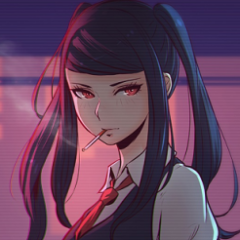
Do Not Love - Violators Will Be Shot [BxG] [Dystopia/Romance][Demo]
chaironiichan reacted to Templarseeker for a topic
Hmm... interesting. Wish you all the best in your project!1 point



